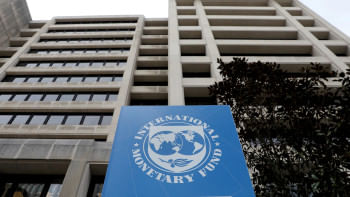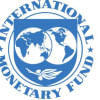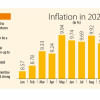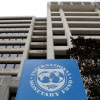IMF cuts Bangladesh growth forecast, warns of high inflation

The International Monetary Fund (IMF) has further cut Bangladesh's growth forecast but kept its projection on inflation elevated for the current fiscal year.
The South Asian economy may grow 3.8 percent in fiscal year 2024-25, down from 4.5 percent the multilateral lender projected in early October, because of output losses caused by the July uprising, floods, and tighter policies.
The IMF's latest projection is lower than Bangladesh's 4 percent growth in the gross domestic product (GDP) the World Bank predicted in October.
As per the prediction by the two multilateral agencies, the FY25 economic growth of the country would be the lowest since FY20 when the Covid-19 pandemic wreaked havoc on the globe.
The IMF said Bangladesh's GDP growth may rebound to 6.7 percent in FY26 as policies relax, according to a statement issued yesterday after the end of a two-week staff visit to Bangladesh.
The mission visited Dhaka to discuss economic and financial policies to review the conditions attached to the $4.7 billion loan package approved for Bangladesh in January 2023.
This was the second time since July this year the IMF cut Bangladesh's economic growth forecast but projected a rise in consumer prices.
In July, the agency said Bangladesh's GDP may expand by 6.6 percent and inflation might be 6.1 percent in the current fiscal year, which will end in June 2025.
In October, the IMF hiked the inflation forecast for Bangladesh and yesterday said the annual average inflation is anticipated to remain around 11 percent in FY25 before declining to 5 percent in FY26 thanks to tighter policies and easing supply pressures.
"However, the outlook remains highly uncertain, with risks skewed to the downside," said the IMF.
The projection comes nearly a week after Bangladesh Bank Governor Ahsan H Mansur said the interim government has set a target to bring down consumer prices to 7 percent by the end of next June, which some analysts doubted since inflation stayed stubbornly high.
The price pressures hit a four-month high of 11.38 percent in November, while food inflation soared to 13.80 percent from 12.66 percent in October, according to data from the Bangladesh Bureau of Statistics.
The 12-month average inflation stood at 10.22 percent in November, up from 10.05 percent in October.

 For all latest news, follow The Daily Star's Google News channel.
For all latest news, follow The Daily Star's Google News channel. 








Comments